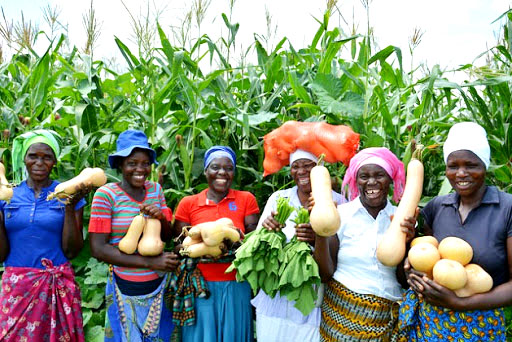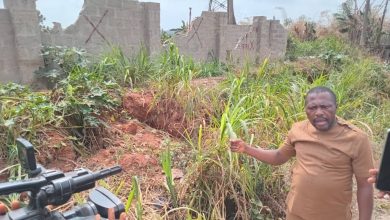
Agriculture remains the backbone of Nigeria’s economy. In the second quarter of 2023, the agricultural sector generated about 21 percent of Nigeria’s Gross Domestic Product while the largest contribution was from crop production, which covered nearly 19 percent of the GDP. While agricultural activities are major sources of livelihood for many Nigerians, oil and gas generated wealth is an exclusive benefit of a few Nigerians.
The agriculture sector for the nation has been made thick and strong by small scale farmers most of whom are women. These women play critical role in ensuring food security. Although they are own and work on small plots of land with limited resources, they remain unarguably the lifeblood of the nation’s agricultural sector as they get involved in the cultivation of crops, livestock rearing, and the processing of agricultural products.
According to the Food and Agriculture Organization (FAO), women account for 60-80% of agricultural labour, producing the majority of food consumed in the country. For this reason, their efforts, though subsistence are considered pivotal to the sustenance of rural communities and the nation at large.
Apart from ensuring food, women also hugely contribute to the diversity of the diet through the cultivation of a variety of crops. They are at the forefront in the production of staple foods like maize, yam, cassava, and vegetables, which are essential to the Nigerian diet. Even it terms of post harvest activities, their involvement is notable in processing, storage, logistics and sales, ensuring that food is available year-round, thereby stabilizing food prices and reducing the risk of food shortages.
Despite this well documented importance, the International Finance Corporation (IFC) regrets that small scale women farmers face significant challenges that hinder their productivity, and weaken rural economies as well as businesses that depend on them and the global food chain.
A major challenge with strong link to tradition in some ethnic backgrounds in the country is the limited or no access to farmland. Due to the patriarchy nature of the country, men enjoy exclusive right to land ownership as cultural barriers often prevent them from owning or inheriting land. As a result, they rely on smaller, less fertile plots, which limits their agricultural output. They have limited or no access to credit and other financial services such as loans, which are critical for the expansion of agricultural activities. They suffer this fate due to lack of landed property which is often demanded as collateral.
In many communities, traditional gender roles and cultural practices restrict women’s participation in decision-making processes related to agriculture. This exclusion limits their influence over policies and programs that affect their livelihoods. At the end, their interests are not taken care of and the society suffers for it. Consequently, when certain incentives are released to farmers, those at the corridor of power or their cronies best described as political farmers get them and resell to small scale farmers for whom those items were meant.
In terms of access to opportunities for education, agricultural training and extension services, small scale farmers are less-privileged compared to their male counterparts. They have limited access and know-how regarding agricultural inputs and mechanical equipment. This justifies why their practice has remain primitive with negative implications for national agricultural productivity.
Close to the above is insufficient agricultural extension services, which are vital for educating farmers and updating their knowledge about modern farming techniques, pest control, and climate-smart agriculture. However, women farmers are often overlooked in the delivery of these services due to gender biases, reducing their ability to adopt improved farming practices.
Another demeaning fact about female agricultural workers is that they often earn significantly lower wages than their male counterparts for the same work. Unfortunately, this discrepancy is only explained by patriarchy. After the drudgery on the farm, the same women face greater workloads on the home front. These include the household responsibilities such as cleaning, cooking, and caring for children and elders.
Another challenge with widespread implication across states of the federal is inadequate infrastructure as facilities that could help in propelling the agric sector to prosperity are lacking. This a huger challenge for farmers in rural settlements, who suffer post harvest loss as a result of deplorable condition of roads, lack of storage facilities, and limited access to markets. Even with bumper harvest, this factor undermines their profit as a larger chunk of the harvested crops could not get to markets, where farmers get rewarded for her toiling. They battle with post harvest loss and end up selling at cheaper rate and cannot increase their production capacity.
Perhaps one of the biggest challenge and redefining issue confronting small scale women farmers is climate change. The negative effects of climate change on agricultural production impact women the hardest as they work under the most perilous circumstances in the sector, with lower wages, tougher conditions and poorer livelihood opportunities.
Climate change impacts such as unpredictable weather patterns and increased frequency of extreme weather events, disproportionately affect their productivity. The situation is worsened by limited access to resources that can enable them to adapt to these changes. Male farmers cope better because they have greater access to resources than the female farmers.
In the face of these realities, intentional efforts must be taken by government, the private sector, non governmental organisations and international partners to harness the full potential of small-scale women farmers and ensure their contribution to Nigeria’s food security.
The government is expected to review, update and implement gender friendly land reform policies which give women equal rights to land ownership and inheritance. This will enable them to access more fertile land and increase their agricultural output.
Financial institutions should be encouraged to develop products and tailor towards addressing the peculiar needs of women farmers. Small scale farmers need such incentives now than any other time in history to enhance their productive capacity. Additionally, government-backed microfinance programmes which offer low-interest loans, which women can invest in their farms are highly solicited.
Provision of gender-sensitive agricultural extension services and implement is also key. As a matter of deliberate policy, government at all levels should ensure that agricultural extension services are gender-sensitive and inclusive. They should consider recruiting female extension officers and train them specifically to work with women farmers, providing them with the knowledge and skills needed to improve their productivity.
Government must be deliberate about developing critical infrastructure to propel the agricultural sector. Massive investments are needed in rural infrastructure, including roads, storage facilities, and market access. This will reduce post-harvest losses, enable women to access markets more easily, as well as increase their income and profit.
Climate resilience programmes must be initiated as a matter of urgency through collaborative efforts of government and Non-Governmental Organizations, to increase the ability of women farmers to adapt to climate change and its imposing effects. This could include training on climate-smart agriculture practices, access to drought-resistant seeds, and support for water conservation techniques.
Also important are education and empowerment which provide women farmers with requisite knowledge they need for twenty-first century. Efforts should be made to build their capacity to cope with emerging challenges. Furthermore, their inclusion in decision-making processes at local, state, and national levels should be prioritized to ensure their voices are heard in the formulation of agricultural policies, which impact them greatly.
Small-scale women farmers are the unsung heroes of Nigeria’s agricultural sector. Their role in ensuring food security cannot be overstated. However, addressing the issues undermining the productive capacity is the best way to fan their huge potentials into flames. Through formulation and implantation of targeted policies and programmes, government at levels can empower them, enhance their productivity, and ensure the nation is food secure. Supporting small-scale women farmers is not just an investment in agriculture; it is an investment in the nation’s well-being and prosperity. The earlier we realize and prioritize the needs of women farmers, the better for us as a nation.




